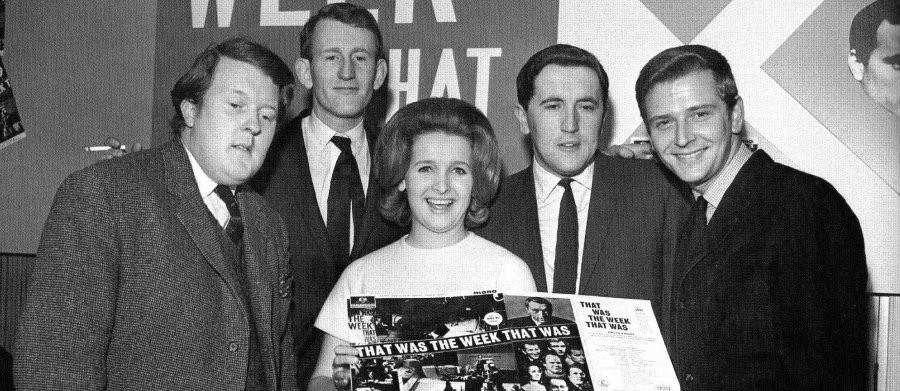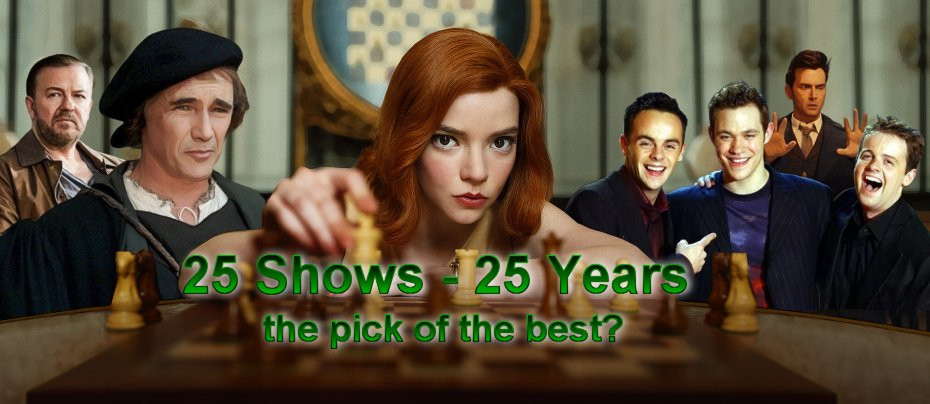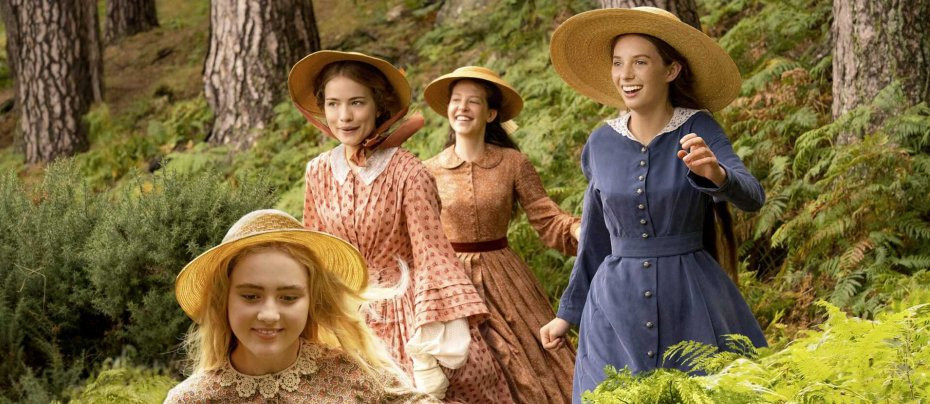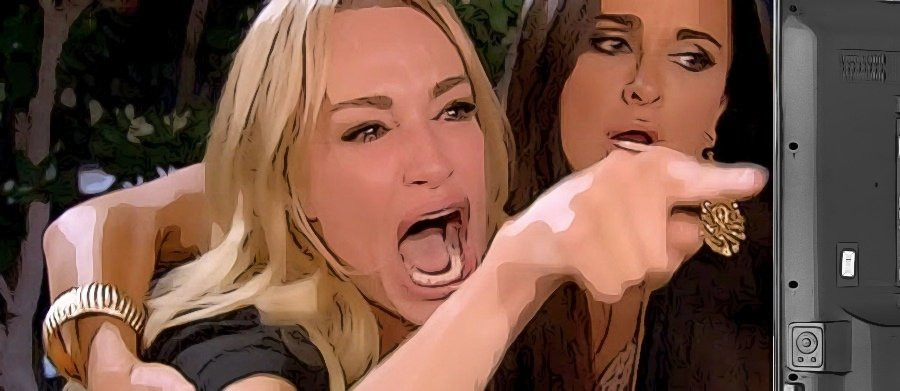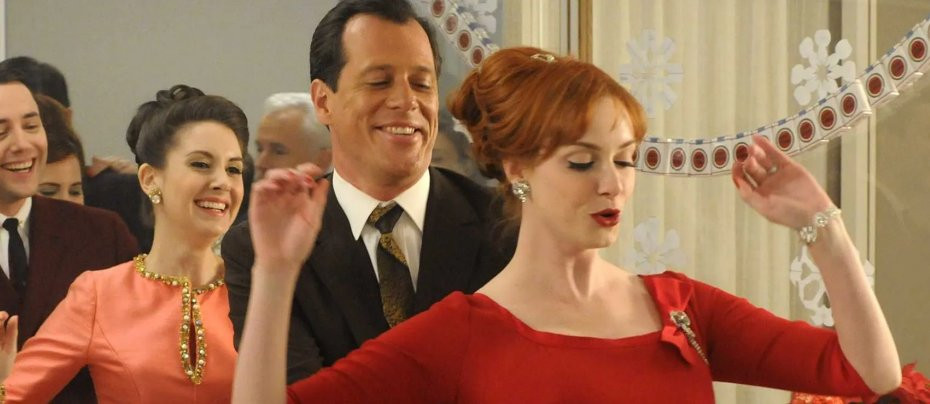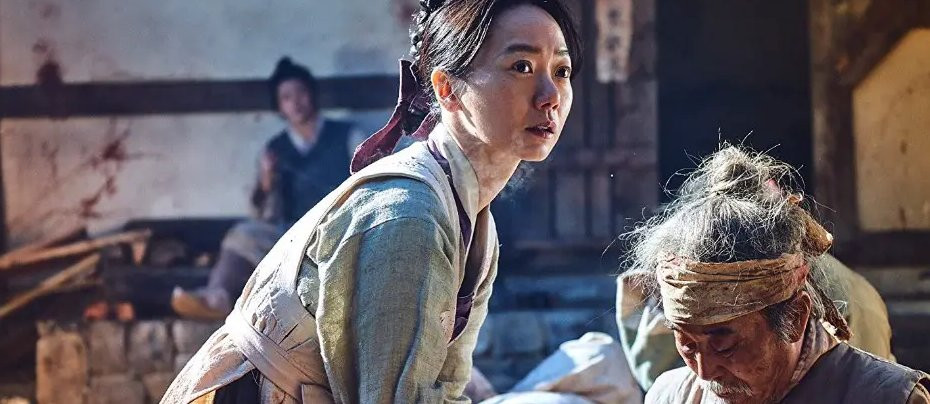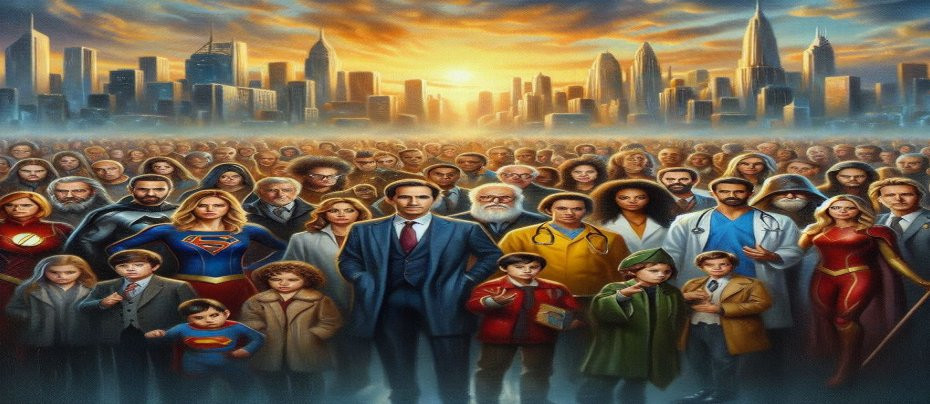
Heroes and Happy Endings - and Why We Need Them
A Personal View
Writing for a television history website, I obviously enjoy television and value its contribution to our culture, at least when it is good. It therefore says something depressing about the current state of television that none of this year's Christmas offerings of the British broadcasters or the major streaming services were as attractive to me as a four-hour YouTube discussion of the 20th Anniversary of the release of Sir Peter Jackson's The Return of the King, the triumphant conclusion of his The Lord of the Rings Trilogy based on the novels of Professor JRR Tolkien.
All right, that probably just says something about me, but it should still be a warning to broadcasters and streaming services that they can no longer take their audiences for granted and that they need to stop viewing each other as their main competition. Their competition is now anything that comes through the same screen as regular programming, be it films on demand, online learning, computer games, YouTube or TikTok videos, news, sports, gambling, or whatever else might interest a particular individual at a particular moment. A viewer's time is the most valuable commodity any media company can acquire, because every individual's time is finite, and, so long as he is entertained, it does not matter to the viewer if he is watching a television show that costs $60 million an episode or a YouTuber with a computer set-up which cost less than a grand mocking that $60 million episode.
The conclusions of the discussion itself about the decline in storytelling skills since 2003 were a reminder of why a Christmas audience of five million is now trumpeted as a major success for a British broadcaster that sometimes enjoyed audiences over twenty million when the population of the United Kingdom was much smaller. Of course, changes in the structure of the entertainment media, most notably the huge increase in the number of channels and other viewing options, are the main factor, but "must see" or "event" television is also a thing of the past because there is now very little being made that one feels one really "must see." The main producers of television content are increasingly out of touch with their customers, not least because, as Robert McKee predicted, they have forgotten how to write Story, despite having trooped to McKee's Story seminars.
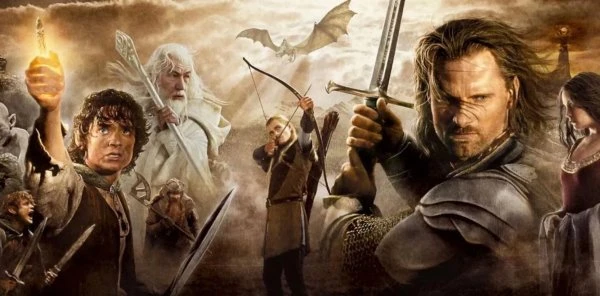
Although a feature film rather than made for television, Jackson's The Lord of the Rings films are worth quoting here as an example of a success story in every sense, a story of a successful journey against the odds, the telling of which was also a successful journey against the odds. It was a success dramatically, visually, critically, and commercially. It even achieved a success that has usually eluded fantasy projects as it also hoovered up Awards, not least at the Oscars. It is a long time since any medium or genre has produced such a comprehensive artistic triumph that transcended politics, religion, generation, race, and culture, because it plugged in to something very ancient and very deep in the human psyche.
This is the basic nature of Story. The function of Story is to convey the values of a culture from one generation to the next. These are most digestible in a narrative form rather than a didactic form. Rather than lecture young people, they were presented with role models they would want to emulate.
Certain story archetypes transcend cultures. They are encountered again and again in different disguises in different parts of the world. Joseph Campbell's book The Hero with a Thousand Faces systematised and popularised the idea of probably the best known story archetype, the "Hero's Journey." The Hero, the role model we are meant to want to emulate, is called to adventure from the safety of his community to take part in some sort of quest. On his journey, he encounters challenges. Sometimes he fails in those challenges, but he learns from his mistakes and so grows stronger. He acquires or demonstrates the virtues which his culture values and wants to instil, and these enable him to succeed in his quest. He returns home fully mature and therefore a useful contributor to his community. He may be rewarded with a position of leadership within that community. Alternatively, or additionally, he may be rewarded with a high-status bride, enabling him to father healthy children. Thus the values of the culture are handed on to another generation. All this is symbolic of the child growing up to become a mature and useful member of the community even if a literal, physical journey is not usually required. This Hero's Journey archetype, in which the protagonist succeeds through struggle, may be contrasted with the "Cinderella" archetype, in which the protagonist is deserving but benefits primarily from a happy turn of events.
Although Tolkien wrote most of The Lord of the Rings before Campbell's book was published, he was familiar with the story archetypes and most of the same concepts, and the novels contain at least eight good examples of the classic Hero's Journey. The same can be seen in a great deal of television drama up to around that point. It tends to be forgotten that, although we all tend to associate different phases of our lives with the big feature films of the time, such as Jackson's The Lord of the Rings Trilogy, the original and "prequel" Star Wars Trilogies, Phase One of the Marvel Cinematic Universe (MCU), and so on, it is always television that is more influential. Even a dedicated cinephile is likely to spend at least ten hours watching television, usually a lot more, for every hour at the cinema. The ratio is much higher in our formative years when as young children we are less likely to be allowed to go to the cinema on our own. The psychological influence of constant repeats is also probably much greater than we realise. I discuss the underestimation of the developmental and cultural importance of television in a previous article on Why Television Matters.
The point here is that both the Hero, the role model with whom we are meant to identify, and some form of positive conclusion to the Hero's Journey, in which he is rewarded, are essential to the purpose of Story, which is to present learning the values of the culture as something desirable, something to be respected and emulated. There would be little attraction in seeking to emulate a hero who was not in some way attractive or whose heroism had unattractive consequences.
A strong culture in evolutionary terms was one with strong values. Weak cultures with weak values did not endure. For most of human history, it was necessary that a strong culture be first and foremost a warrior culture in order to survive. Anything else the culture might develop, like art, technology, philosophy, etc, depended on it surviving in the first place. It is therefore no coincidence that the role models presented in the stories of those cultures from all over the world were first and foremost warriors - Odysseus, Arthur, Robin Hood, Lin Chung, d'Artagnan, and so on. The values that their stories were designed to promote are those necessary in a warrior, most importantly courage and loyalty.

Until very, very recently, military technology and tactics demanded a certain level of physical strength so that warriors were almost exclusively men. This is why there is a definite male bias in most of the stories from before the 18th Century that have come down to us. This does not mean that women did not have their own stories, but hardly anyone bothered to write them down. Feminists have every right to complain about this. In recent decades there has been a deliberate effort to correct it, so that the bias in more modern stories may be going the other way. The publishing industry has latched on the statistic that women buy far more novels than men, so there has been a greater output on novels specifically for women. Many, perhaps most, of the "gatekeepers" in publishing are now women, and there now seem to be fewer masculine stories in mainstream commercial literature.
Something similar is happening in cinema and television, but on a more questionable commercial basis. In film production the statistic with which executives have become obsessed suggests that women are more likely to choose the film on a date. In fact dates are a very small percentage of the theatrical market. Anyone with any serious dating experience will know that the cinema is in fact a very bad venue if one is looking for romance. Males on their own or with other males are more likely to make up most cinema audiences for the big franchise films. The same is true of big franchise television. It is young males who are more likely to spend their money on merchandising. This is a fact that the studios running big franchises seem to have forgotten. Men still exist, and are the bed and butter of most big franchises.
Yet it would be difficult to imagine The Lord of the Rings being made today as Tolkien intended, as a traditional tale of masculine heroism, in spite of its including some genuinely strong female characters who are far more impressive than the caricatures to whom that label is applied in more recent productions. Just compare Tolkien and Jackson's magnificent Eowyn with almost any recent female action hero, or indeed with their Galadriel with the inferior character of the same name in Amazon's recent The Rings of Power. I address this topic more fully in a previous article on The Rise and Fall of the Female Action Hero. Suffice it to say here that to blame the failure of projects with poorly written female protagonists on some notion of male rejection of female heroism is to argue against a straw man: film and television viewers, male and female, have never had a problem sympathising with well written female protagonists.
Yet the desirability of more positive female role models as well does not negate the fact that the need for strong role models for boys and young men still remains. Indeed, with many not having an appropriate male role model in their own homes, the need for television to supply them is greater than ever. The majority of heroes on television are, of course, still male, but there is a tendency to emphasise their flaws and weaknesses, while women are presented as flawless and "overpowered" in the "gamer" sense of the word. In addition to undermining the men as role models, this also makes the female characters less convincing and less interesting in dramatic terms. Apart from anything else, such loser men are not particularly attractive to most female viewers and "girl boss" types are positively unattractive to most male viewers, and no one wants to spend time with people they do not like.
We need proper heroes again, both male and female.
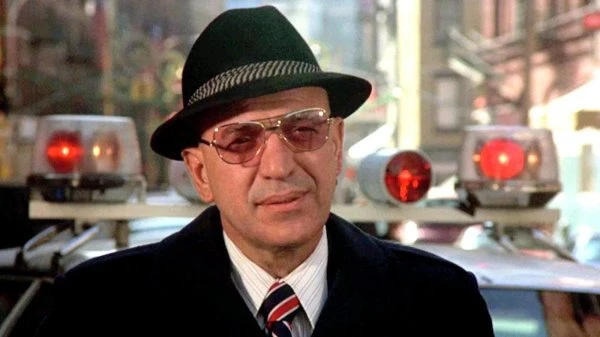
There seemed to be no shortage of them on television when I was growing up in the Seventies and early Eighties. They came in all shapes and sizes: while most were classically good looking and well adjusted, some were allowed to be "old" (by the standards of younger viewers) like the first Four Doctors in Doctor Who, handicapped like Ironside or Steve Austin in The Six Million Dollar Man, from ethnic minorities like Kojak, social rejects like Caine in Kung Fu, pedantic and nerdy like the title character in I,Claudius, and even overweight like Frank Cannon. In some ways they were more "diverse" back then than they are today when it often seems that only the young and the good looking are allowed to be heroic on television. Older people are now usually just obstacles for the young to overcome and ugliness is almost invariably associated with evil. Of course, there were fewer women and people with darker coloured skins in leading roles in my childhood and youth, but even as a child I was aware that was changing as I watched. Those were indeed the days when progress was most meaningful. The younger generation today seem to assume they invented inclusion at some point in the 2010s when the truth is that they arrived late just as the party was winding down.
Heroes were not always heroic. Heroes who are complex and flawed have always been more interesting in dramatic terms, not least because they seem more realistic, but are still heroes. From the Sixties onwards, the "anti-hero" was a well established type on television. The anti-hero might be something of a rogue, but you could always count on him to do the right thing before the end of the episode. When Bret Maverick or whoever - James Garner was particularly good at this sort of thing - was riding away from the Town explaining loudly to his horse that it was none of his business what the villain was going to do to the settlers you knew it was really a prelude to his turning that horse around and going back to help them.
The anti-hero was therefore another valuable lesson in himself, showing how our past deeds need not define our future conduct, and how no one was beyond change and possible redemption.
There were a handful of shows that remained deliberately subversive to the end, Blake's 7 being perhaps the most memorable example, but the shock conclusion to that show was shocking precisely because it was so unexpected in the context of the time. It might not have the same impact today.
In general, shows intended for children and for family viewing followed the Hero's Journey format very closely. The protagonist was taken out of his comfort zone, challenged, found wanting, forced to grow in order to succeed, and eventually rewarded. As often as not, television adaptations of the likes of The Last of the Mohicans and Kidnapped involved journeys that were literal as well as metaphorical. Obviously I am not talking in this context about more "grown up" social realist drama which was rarely watched by the young and therefore had little influence on their development. The shows that mattered were the ones that children copied in their own games, imitating the characters they liked. Innocent as it sounds, we honestly wanted to be like those characters.
Do children still do that? Do they even play games as we did - with teddy bears and toy soldiers and other children taking on the characters we had seen on television? If so, it is rather frightening to think of what ideas they may be picking up about what it is to be good and heroic, and what should be desired and emulated, given the ambiguous nature of so many recent "heroes."
While it is possible to exaggerate this, most producers and writers back in the 20th Century had at least some notion of moral responsibility, especially when they were working on what they knew would be viewed by children and families. The concept of "standards" at the BBC and the major US networks was mocked even then, not least by people working for those organisations, but there was a consensus some sort of public duty existed. Now it seems that the highest good is to "push the envelope" simply for the sake of pushing it, or at least to shock in order to attract attention.
For example, Jack Reacher is an entertaining character to watch as a middle-aged adult unwinding from the frustrations of daily life, but would you want your young son growing up with the idea that to be a real man means acting like a borderline psychopathic loner with no responsibilities who solves problems by hitting or killing people? Or would you want your daughter to grow up with the idea that coming across as bossy and entitled like the Rings of Power version of Galadriel is the best way to get others to follow her if she aspires to a leadership position?
Where are the healthy role models? It is difficult to think of the leading character of any recent show whom one would actually want one's own children to aspire to emulate.
And where are the happy endings? Yes, we know that in real life everything is not wrapped up neatly at the end of an episode. Part of the reason we watch television is to get a little time away from the pressures of that reality. We need to be reminded that there is hope, even when - no, especially when - there seems little sign of it in our daily existence.

Perhaps the most depressing example of a show that turned optimism into pessimism is Doctor Who. It is important to note that in the old, pre-revival Doctor Who there was a definite Hero's Journey but the hero on the journey was not The Doctor himself. It was The Doctor's Companions with whom the viewer was meant to identify. The Doctor was a different archetype, the hero's older mentor figure or guide, the Obi-Wan Kenobi to the Companion's/viewer's ignorant young Luke Skywalker. This was in accordance with the old literary and dramatic tradition in which the "juvenile lead" is not necessarily the main character. We were the Companions but it was still The Doctor's show. Even at his most eccentric, The Doctor always maintained a degree of mystery. The full extent of his knowledge and powers was never fully explained, so they seemed limitless. That is what made him such a compelling character.
That suggestion of hidden power and wisdom beyond our comprehension was also one of the reasons why we trusted The Doctor to keep us safe. I do not mind admitting that, as a child, I found some of the stories quite frightening, and some of The Doctor's foes were very intimidating. Television helped to introduce children to the concept of death and it was very much on the line in Doctor Who - with no contrived reappearances of deceased popular characters in later seasons. While it was far more of a family show than it was after the revival, it was far more ruthless in that once a character was out he was out for good. Yet in spite of all our fears, we could always rely on The Doctor to bring us safely home in the form of our surrogates, his Companions. This is why the first time he failed to do so, when Adric was killed, may be said to be the beginning of the end of the original show.
The revival changed everything by making The Doctor himself the hero with whom we are meant to identify. As we found out a lot more about him, he lost most of his mystery. His vulnerabilities and neuroses were exposed. He no longer seemed almost omniscient and invincible. This made him a more interesting character in dramatic terms, leading to great commercial success, even cracking the elusive American market at last. However, something was lost along the way. The more we found about his weaknesses, the less trustworthy he became.
Would anyone, adult or child, actually want to be any of the recent Doctors? Or their Companions? They are entertaining but hardly role models. Would anyone actually choose to go on an actual adventure with them? Could we trust them to bring us safely home as we had trusted Hartnell, Troughton, Pertwee, and Baker?
This is an interesting thought experiment. If you had to go on a dangerous journey, who would you want with you? Gandalf, Aragorn, Gimli, Sam, and Co, definitely. The crew from the original Star Trek or The Next Generation, yes. Also, the Scooby Gang from Buffy the Vampire Slayer, but doubt begins to creep in with the team from Angel. They are fun but could you rely on them always to do the right thing in difficult situations?
It was around that time that the public mood was beginning to change and a sense of cynicism began to creep in that was amplified in the entertainment media. Was this due to the end of the Cold War leading to an abandonment of grand narratives, even the very concepts of Good and Evil, or Right and Wrong, as surplus to requirements? Or was it because the War on Terror forced many to come to terms with a world more complex than they had assumed? Or was there a growth in general distrust following the 2008 Crash? Whatever the reason, or reasons, there are few heroes or bands of heroes from the last ten years of television with whom you would feel safe on a dangerous mission. There are many, like the eponymous protagonists of The Boys, you would actually go out of your way to avoid.
You would certainly not want your children thinking of such people as role models.
There are some characters on recent television who are portrayed as honest and honourable - Ned Stark in Game of Thrones springs to mind - but it rarely ends well for them. The lesson seems to be that morality and decency are not good survival traits. This is why it is important not only to have heroic characters but to show them being rewarded for their heroism.
Indeed those aspects of their character which make them heroic should be shown as the reasons for their success and their reward. The brave man should be shown as succeeding specifically because of his bravery and being rewarded for it, not because something else happens to work out well for him. Again, the fact that real life rarely works out this way is the very reason that hope must be encouraged in stories.
Yet there are signs of hope, even now. Old-fashioned heroes can sometimes be found in very surprising places. Monkey D Luffy and the Straw Hat Pirates in One Piece are a wonderful, life-affirming updating of Robin Hood and the Merry Men. Luffy himself turns out to be an unexpectedly gifted leader, encouraging those around him to be the best they can be. To an extent so does Prairie, "The OA," in The OA, which also shows how a diverse assortment of broken people can form a team that is stronger than the sum of its parts. How their individual characters become stronger in good company is part of the appeal of The Expanse, which is curiously traditional in some ways, and the deliberately nostalgic Stranger Things. By contrast, the title character in Mare of Easttown is basically Gary Cooper in High Noon, an unappreciated honest lawman doggedly doing her duty in adverse circumstances.

In the animation Samurai Rabbit, our immature hero makes a literal journey, to the Big City, where he grows up in classic Campbell style. In Arcane several characters, most notably Vi, learn by trial and error how their choices define who they are. In Aggretsuko a timid young red panda finds the strength within herself to progress from office drone to Parliamentary Candidate. While Money Heist can hardly be commended from an ethical perspective, what is commendable is how its flawed characters grow in adversity and even exhibit a degree of unselfishness not normally associated with criminals.
Yet, while some of these characters might indeed be good companions, even leaders, on a theoretical dangerous journey, they are still not good role models, because it is still hard to see anyone wanting to be any of them, even if they all have useful lessons to teach.
Part of the problem is that most television drama now seems determined to be subversive in some way. Subversion certainly has its place in drama, but when everything is subversive nothing is subversive.
Younger people might be inclined to write all this off as the ramblings of an old man nostalgic about his childhood. In fact one of the things that age teaches you is how to accept change, because you realise it comes whether you like it or not, but change is not necessarily the same as progress. Moreover, it is for younger people, rather than myself, that I am concerned.
Much as those who claim to be intellectuals try to ignore it, television, not literature, drama, opera, or cinema, is now the principal medium for Story in our modern culture. It has been for at least the last two generations, and will probably remain so unless and until "virtual reality" takes over. Story is the basis of culture, and culture is what binds us together and gives us a firm foundation to explore who we are in an increasingly confusing and fragmented world. The shared experience of Story gives us a sense of belonging and some assurance that we are not alone. Story evolves, so we need not be bound by the stories of the past but we need to know them if we are to develop meaningful stories of our own: there can be no progress without understanding the past, because we have no idea where we are going unless we know where we are and no idea where we are unless we know where we have been.
This is what too many young people seem to lack these days. Fed a mass produced diet of "content" rather than Story, they have little sense of belonging to any common culture or tradition. Culturally rootless, they are influenced by whatever happens to come across their screens - and whoever or whatever happens to be controlling the algorithms controlling access to those screens at that moment. Without culture they have little sense of their own identity, without heroes they have nothing to which aspire, and without the prospect of happy endings they have no hope. They drown in an ocean of nihilism. That is obviously not healthy for them or for any culture of and to which they should be contributing members.
We need culture, we need Story, we need heroes, and we need them to have happy endings as a result of their heroism - and, above all, we need them on television.
Published on January 15th, 2024. Written by John Winterson Richards for Television Heaven.


